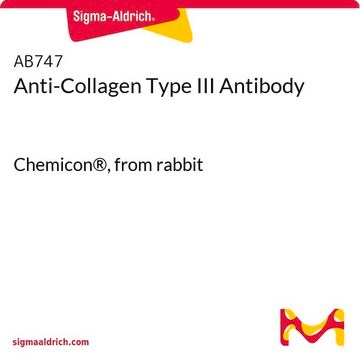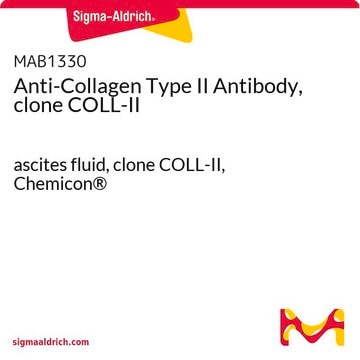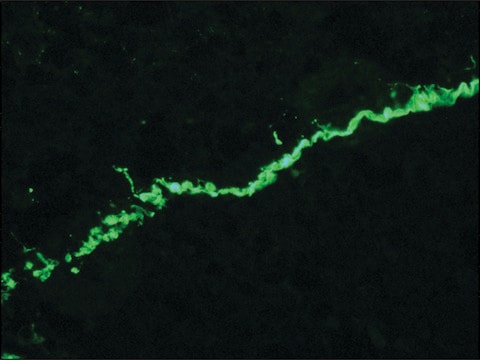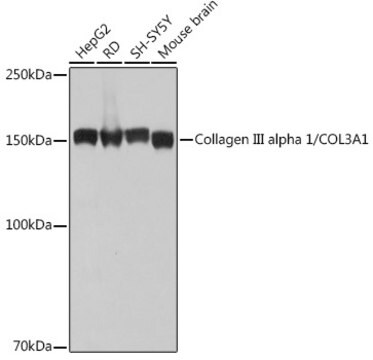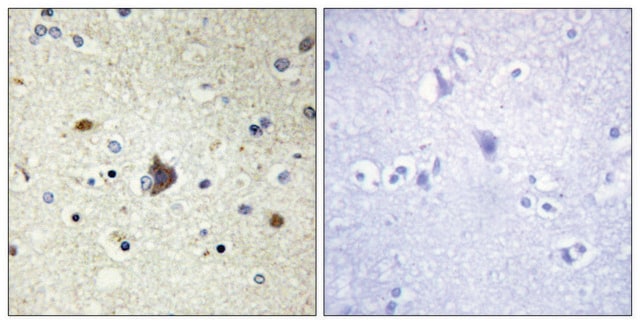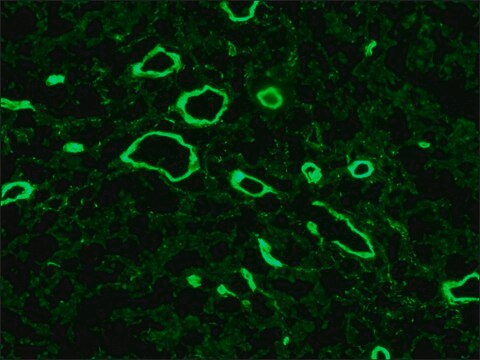SAB4200749
Anti-Collagen Type III antibody, Mouse monoclonal
clone FH-7A, purified from hybridoma cell culture
Sinónimos:
Anti-COL3A1, Anti-Collagen alpha-1(III) chain
About This Item
Productos recomendados
biological source
mouse
Quality Level
antibody form
purified from hybridoma cell culture
antibody product type
primary antibodies
clone
FH-7A, monoclonal
form
buffered aqueous solution
mol wt
~70 kDa
species reactivity
rat, human
concentration
~1.0 mg/mL
technique(s)
ELISA: suitable
immunoblotting: suitable
immunofluorescence: suitable
immunohistochemistry: 10-20 μg/mL using heat-retrieved formalin-fixed, paraffin-embedded rat skin sections.
isotype
IgG1
UniProt accession no.
shipped in
dry ice
storage temp.
−20°C
target post-translational modification
unmodified
Gene Information
human ... COL3A1(1281)
General description
Monoclonal anti-collagen type III specifically recognizes native and denatured collagen type III from human 1 and rat 2 origin. It does not recognize collagen types I, II, IV, V, VI and X.
Collagen type III, also known as collagen α-1(III) (COL3A1), is encoded by the gene mapped to human chromosome 2q24.3-q31. It is the highly expressed collagen in blood vessels and hollow organs.
Immunogen
Biochem/physiol Actions
Physical form
Storage and Stability
Other Notes
¿No encuentra el producto adecuado?
Pruebe nuestro Herramienta de selección de productos.
Optional
Storage Class
12 - Non Combustible Liquids
wgk_germany
nwg
flash_point_f
Not applicable
flash_point_c
Not applicable
Certificados de análisis (COA)
Busque Certificados de análisis (COA) introduciendo el número de lote del producto. Los números de lote se encuentran en la etiqueta del producto después de las palabras «Lot» o «Batch»
¿Ya tiene este producto?
Encuentre la documentación para los productos que ha comprado recientemente en la Biblioteca de documentos.
in a Family with Aortic Aneurysms
Nuestro equipo de científicos tiene experiencia en todas las áreas de investigación: Ciencias de la vida, Ciencia de los materiales, Síntesis química, Cromatografía, Analítica y muchas otras.
Póngase en contacto con el Servicio técnico
